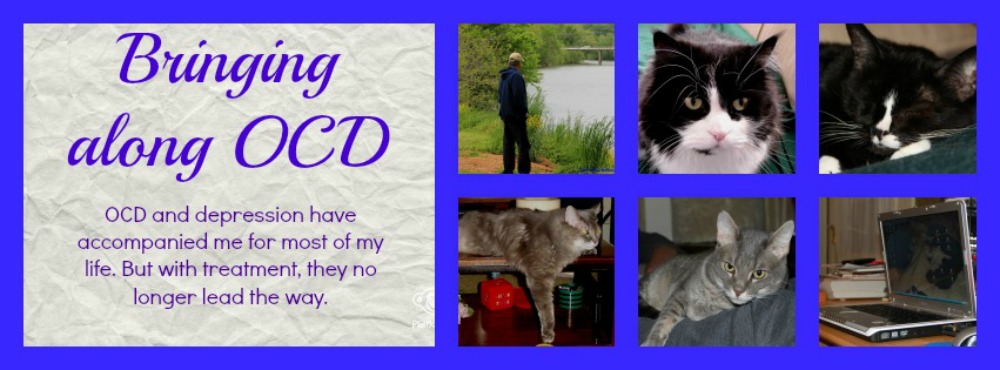I started having symptoms of obsessive-compulsive disorder and depression when I was a young girl, around 8 or 9, but I didn’t get treatment for the disorders until I was 27.
Why the delay?
One reason was because my parents apparently didn’t recognize that their daughter had some major problems.
My mother in particular thought I was being “contrary” and disobedient because I ran the water too long when I washed my hands, took too long in the bathroom, wouldn’t finish a book for a class assignment, did everything slowly, etc.
I never tried to explain myself to my parents, because I thought I must be crazy, and I couldn’t admit that.
Do I blame my parents? As an adult, I have definitely carried some resentment because they didn’t try (to my knowledge) to find out what was wrong with me, or get me some help. But that discussion is for another day.
When I was a teenager, I read a magazine article about OCD (I don’t remember which magazine—Teen? Good Housekeeping?). I was shocked that there were other people who did many of the same strange things I did.
That new knowledge made me feel less like a crazy person but no less isolated. I was so embarrassed and worried about reactions from others that I never told anyone, not even my doctor.
At the end of my first year of college, I got very down and homesick. After my parents visited me at school one weekend, my mother wrote me and said how sorry she was that I was so depressed. That was the first time I thought of myself as depressed.
No one suggested that I see a doctor or therapist about my depression. There was a great stigma around anything that smacked of mental illness in the community I grew up in.
So I plugged along, believing that I was just a miserable, unlucky person.
My OCD symptoms became almost unbearable when I was in graduate school. I was far from home and lived by myself. I suffered from obsessions and compulsions that made my hands bleed, took me away from my studies, and made me think death must be a relief.
I was also depressed, which I thought was situational. I finally discussed that with a friend, and she suggested that I see a therapist at the counseling center on campus.
Oh, I could never go see a therapist, I remember saying.
Well, I see one, my friend said.
That surprised me, because my friend seemed to be the personification of sane. But her honesty with me provided the impetus for me to make an appointment to see a counselor.
That counselor, who was a PhD in psychology, probably saved my life. I spent a year talking about my childhood, my relationships, my sense of self and my negative and unhelpful thought processes.
My first foray into talk therapy—any kind of therapy—helped me to change my perspective: on my background, my past experiences, and the subsequent negative ways I thought of myself.
I began to think less negatively, and I began to recognize that the way I thought about things had direct, real effects on how I lived my life.
But after a year, but I wasn’t feeling better. And my OCD symptoms marched on.
Because I never once mentioned my OCD to the therapist.
In my next post, I’ll write about my first encounter with a psychiatrist.

